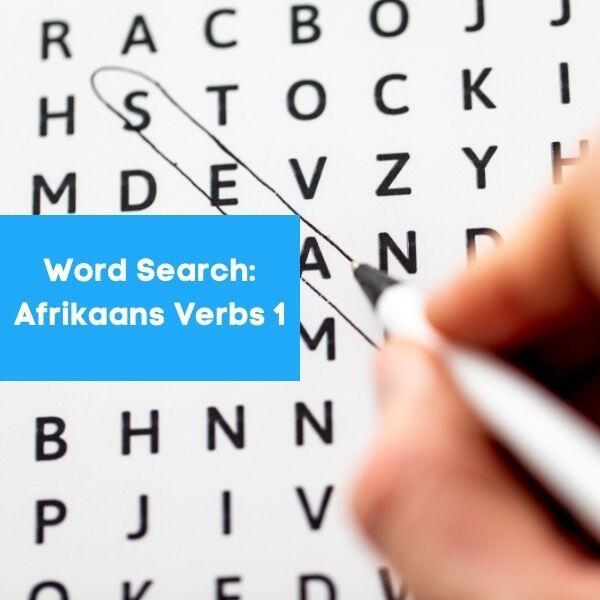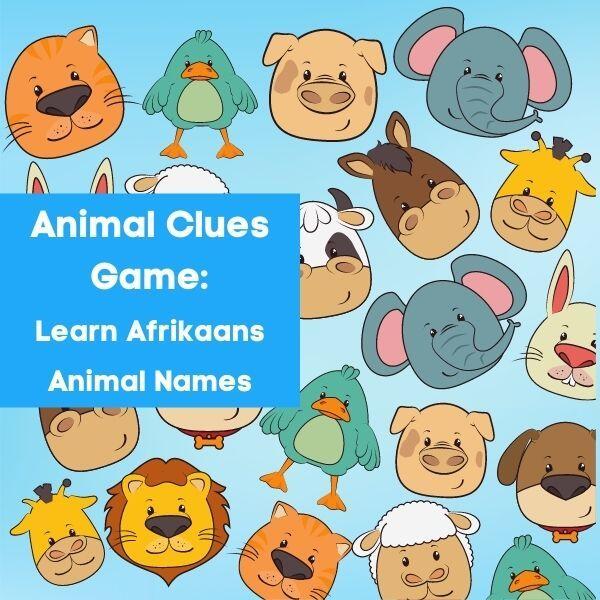Greetings And Salutations In Afrikaans
Afrikaans has a variety of ways to greet people, depending on the time of day, your relationship to the person, and whether you want to be formal or casual.
In this article, we’ll discuss all the various ways to say hello, good morning, good afternoon, etc. in Afrikaans, plus a whole host of other salutations.
So whether you’re just visiting South Africa on vacation, or you’re planning to learn the language in hopes of becoming fluent, you won’t want to skip this article!
Afrikaans Greetings
| English | Afrikaans |
|---|---|
| Hello/hi | Hallo Haai |
| Good day | Goeie dag |
| Good morning | Goeie more More |
| Good morning, my love | Goeiemôre, my skat |
| Good afternoon | Goeie middag |
How to say “hello/hi” in Afrikaans
The most common way to say hello in Afrikaans is “hallo”; to say hi is “haai”. These can be used as a general greeting at any time of day, just as you would use them in English. They’re pretty informal, so you might want to use something else if you’re talking to someone you don’t know very well, or if you’re in a formal setting.
What does “goeie dag” mean in English?
“Goeie dag” is Afrikaans for “good day”. It’s a more formal way of saying hello, and it can technically be used at any time, though it’s more commonly used in the earlier parts of the day.
How to say “good morning” in Afrikaans
If you want to say good morning in Afrikaans, you use “goeie more” or simply “more”. This is a more formal way of saying hello, and it’s usually used in the morning or early afternoon.
And if you want to give it a personal touch, especially when saying it to your partner, you could use “goeiemôre, my skat”, which loosely translated means “good morning, my love”.
How to say “good afternoon” in Afrikaans
“Goeie middag” is the go-to phrase for “good afternoon” in Afrikaans. You can use this from early lunchtime until early evening.

Afrikaans Farewells
| English | Afrikaans |
|---|---|
| Good evening | Goeienaand |
| Goodnight | Goeienag Nag |
| Sleep well/tight | Slaap lekker |
| Goodbye | Totsiens Sien jou later Sien jou binnekort Sien jou more |
| Have a good day | Lekker dag |
How to say “good evening” in Afrikaans
To say “good evening” in Afrikaans, you use “goeienaand”. You’ll typically use this phrase starting in the early evening, and it can be used up until bedtime. It can be used as a greeting or farewell.
How to say “goodnight” in Afrikaans
If you’re looking to say goodnight in Afrikaans, “goeienag” or simply “nag” is the phrase you’ll want to use. This, unlike good evening, is almost always used as a farewell.
Another way to say this that’s a bit more pleasant and informal is to use “slaap lekker”, which translates to “sleep well/tight”. This is usually said before bed, as a goodnight farewell. Maybe you have a friend staying over, or you’ve just put your kids to bed? In either case, this is a nice way to say goodnight.
Saying “goodbye” in Afrikaans
There are several ways to say goodbye in Afrikaans. The most common among them is “totsiens”, which is a shortened form of the old saying “tot weersiens”, meaning “until we see each other again”.
You can also say “sien jou later” which translates to “see you later”, “sien jou binnekort” which means “see you soon”, and there’s even “sien jou more”, which, yep, you guessed it, means “see you tomorrow”.
Finally, if you want to add an extra layer of pleasantry, you can say, “lekker dag” which means “have a good day”.
You can learn how to pronounce everything you’ve just learned by listening to the short video below.
How are you?
| English | Afrikaans |
|---|---|
| How are you? | Hoe gaan dit? Hoe gaan dit met jou? |
| How are you today? | Hoe voel jy vandag? Hoe is jy vandag? |
| Good, thanks, and you? | Goed, dankie, en jy? Dit gaan goed, en met jou? |
As in English, sometimes you’ll want to add a bit more personalization to your greetings in Afrikaans.
“How are you?” in Afrikaans
Asking someone how they are is frequently tacked onto greetings like “hallo”. You would say, “hoe gaan dit?” This is an informal way to ask someone how they’re doing, and it’s equivalent to the English phrase “how’s it going?”
Then there’s the similar but slightly different “hoe gaan dit met jou?”, which means “how are you doing?”
If you want to take it up a notch, you could try asking them how they feel. “Hoe voel jy vandag?” translates to “how are you feeling today?”, while “hoe is jy vandag?” means “how are you today?”
A response, if someone is in good spirits, should be either “goed, dankie, en jy?” which means “good, thank you, and you?”, or “dit gaan goed, en met jou?” which is “I’m doing well, and you?”
Wrapping things up
We hope you’ve found this guide to Afrikaans greetings and salutations helpful.
As with any foreign language, people will have different ways of greeting each other, sometimes due to age (think “yo” or “what’s up?” in English), or region of the country (think “howdy” in the southern United States).
But these are some of the most common greetings you’ll hear in Afrikaans, in most parts of South Africa where the language is spoken, so you’ll be able to navigate most situations with ease.
If you want to learn some more useful vocabulary, check out our post The Most Common Verbs in Afrikaans.
Have fun!



